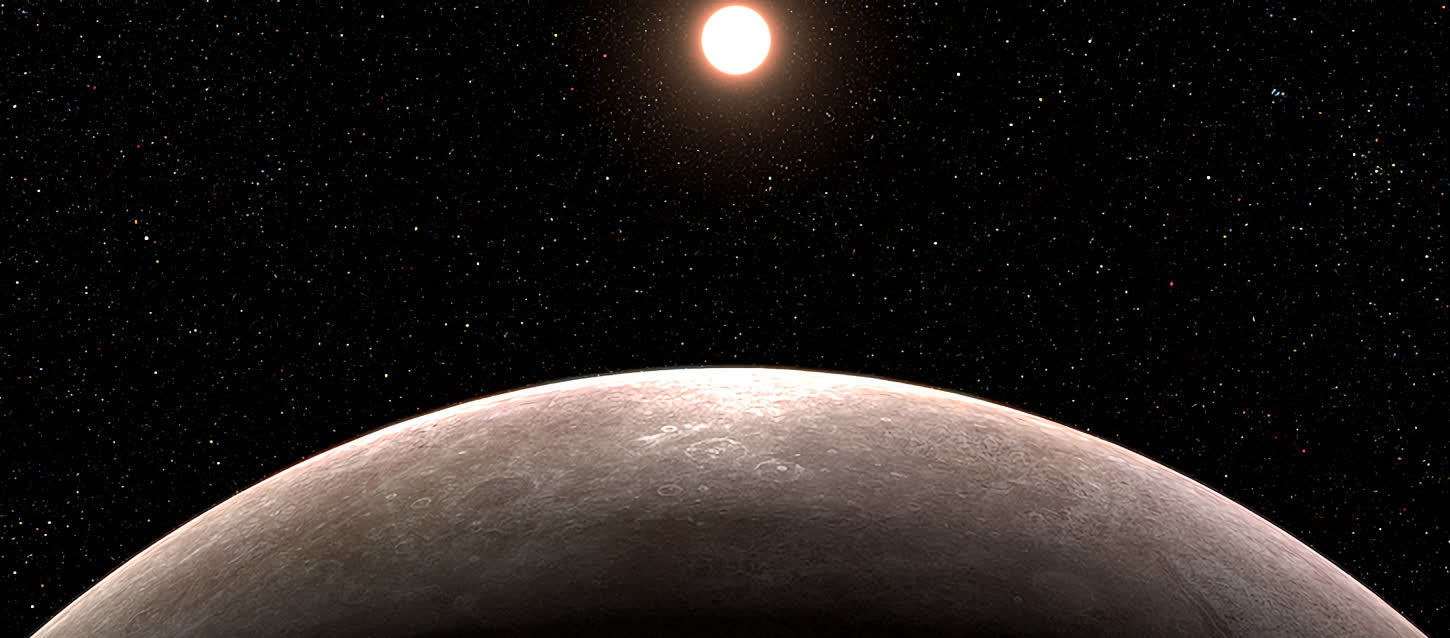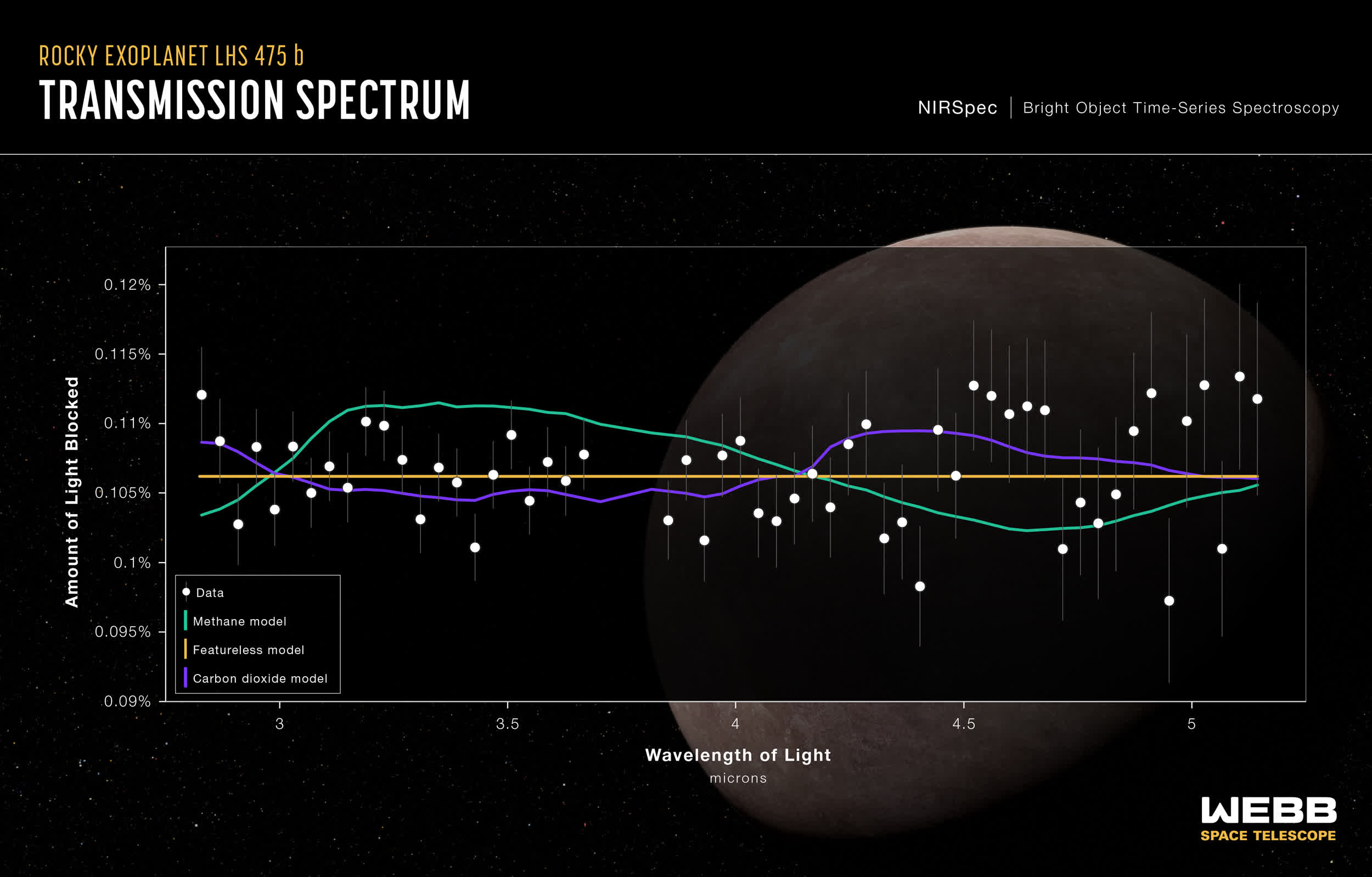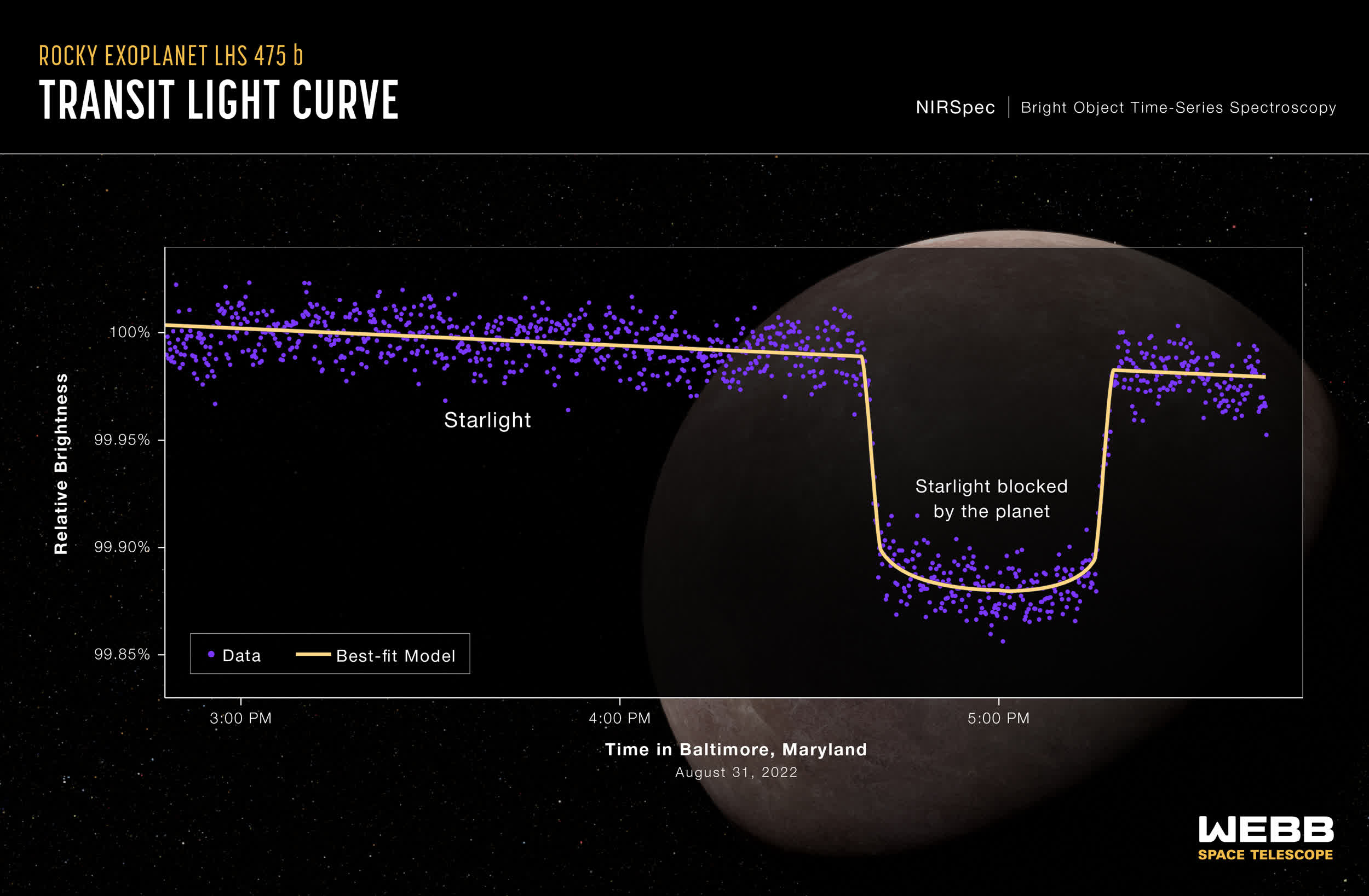In a nutshell: Researchers from Johns Hopkins Applied Physics Laboratory have confirmed an exoplanet using NASA's James Webb Space Telescope for the first time. The team, led by Kevin Stevenson and Jacob Lustig-Yaeger, selected LHS 475 b after carefully reviewing targets from NASA's Transiting Exoplanet Survey Satellite (TESS). LHS 475 b is located 41 light-years away in the constellation Octans. Webb's Near-Infrared Spectrograph (NIRSpec) was able to capture the exoplanet with only two transit observations on August 31, 2022.

Data confirmed the exoplanet is an Earth-sized terrestrial planet measuring 99 percent of Earth's diameter. What the team doesn't yet know is whether or not the planet has an atmosphere.
(As this spectrum shows, Webb did not observe a detectable quantity of any element or molecule. The data (white dots) are consistent with a featureless spectrum representative of a planet that has no atmosphere (yellow line). The purple line represents a pure carbon dioxide atmosphere and is indistinguishable from a flat line at the current level of precision. The green line represents a pure methane atmosphere, which is not favored since if methane were present, it would be expected to block more starlight at 3.3 microns.)
"The telescope is so sensitive that it can easily detect a range of molecules, but we can't yet make any definitive conclusions about the planet's atmosphere," said Erin May, also from the Applied Physics Lab. They were able to definitively rule out the possibility of a methane-dominated atmosphere like the one seen on Saturn's moon Titan.
(A light curve from NASA's James Webb Space Telescope's Near-Infrared Spectrograph (NIRSpec) shows the change in brightness from the LHS 475 star system over time as the planet transited the star on August 31, 2022.)
Webb further revealed that the exoplanet is a few hundred degrees warmer than Earth and completes a full orbit in just two days. It is closer to its star than any planet in our solar system but its red dwarf star is less than half as hot as the Sun, so the possibility of an atmosphere isn't off the table.
If clouds can be detected, it could mean the planet is more like Venus with a carbon dioxide atmosphere shrouded in thick clouds. NASA said even more precise measurements will be needed to determine if a pure carbon dioxide atmosphere is present. Fortunately, the team is scheduled to obtain more spectra through additional observations this summer.
https://www.techspot.com/news/97252-nasa-james-webb-telescope-confirms-first-exoplanet.html


